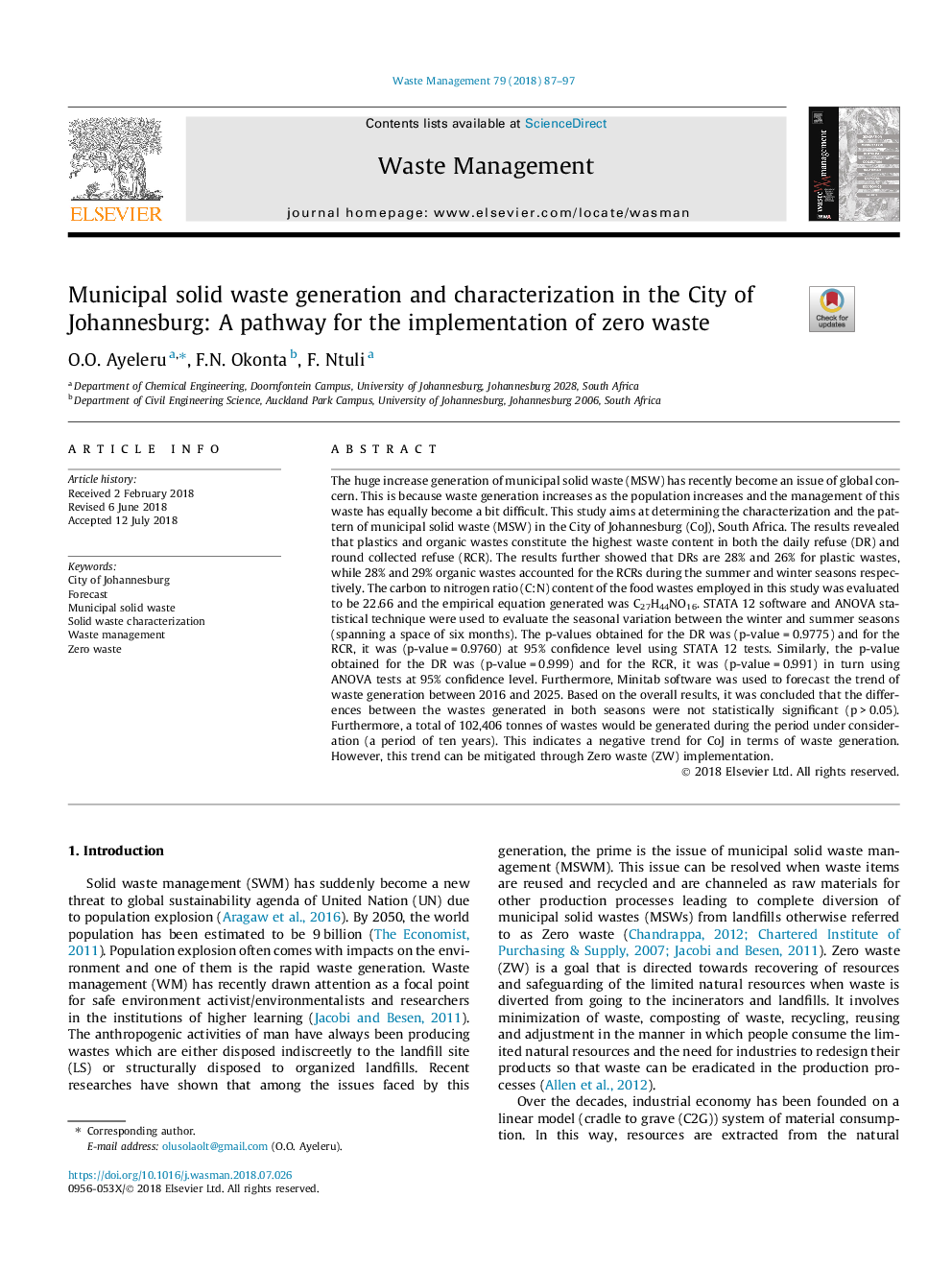| کد مقاله | کد نشریه | سال انتشار | مقاله انگلیسی | نسخه تمام متن |
|---|---|---|---|---|
| 11033265 | 1622607 | 2018 | 11 صفحه PDF | دانلود رایگان |
عنوان انگلیسی مقاله ISI
Municipal solid waste generation and characterization in the City of Johannesburg: A pathway for the implementation of zero waste
ترجمه فارسی عنوان
تولید و مشخص ساختن زباله های شهری در شهر ژوهانسبورگ: مسیری برای اجرای زباله های صفر است
دانلود مقاله + سفارش ترجمه
دانلود مقاله ISI انگلیسی
رایگان برای ایرانیان
کلمات کلیدی
شهر ژوهانسبورگ، پیش بینی، زباله جامد شهری، خصوصیات ضایعات جامد، مدیریت زباله، زباله،
موضوعات مرتبط
مهندسی و علوم پایه
علوم زمین و سیارات
مهندسی ژئوتکنیک و زمین شناسی مهندسی
چکیده انگلیسی
The huge increase generation of municipal solid waste (MSW) has recently become an issue of global concern. This is because waste generation increases as the population increases and the management of this waste has equally become a bit difficult. This study aims at determining the characterization and the pattern of municipal solid waste (MSW) in the City of Johannesburg (CoJ), South Africa. The results revealed that plastics and organic wastes constitute the highest waste content in both the daily refuse (DR) and round collected refuse (RCR). The results further showed that DRs are 28% and 26% for plastic wastes, while 28% and 29% organic wastes accounted for the RCRs during the summer and winter seasons respectively. The carbon to nitrogen ratio (C:N) content of the food wastes employed in this study was evaluated to be 22.66 and the empirical equation generated was C27H44NO16. STATA 12 software and ANOVA statistical technique were used to evaluate the seasonal variation between the winter and summer seasons (spanning a space of six months). The p-values obtained for the DR was (p-valueâ¯=â¯0.9775) and for the RCR, it was (p-valueâ¯=â¯0.9760) at 95% confidence level using STATA 12 tests. Similarly, the p-value obtained for the DR was (p-valueâ¯=â¯0.999) and for the RCR, it was (p-valueâ¯=â¯0.991) in turn using ANOVA tests at 95% confidence level. Furthermore, Minitab software was used to forecast the trend of waste generation between 2016 and 2025. Based on the overall results, it was concluded that the differences between the wastes generated in both seasons were not statistically significant (pâ¯>â¯0.05). Furthermore, a total of 102,406 tonnes of wastes would be generated during the period under consideration (a period of ten years). This indicates a negative trend for CoJ in terms of waste generation. However, this trend can be mitigated through Zero waste (ZW) implementation.
ناشر
Database: Elsevier - ScienceDirect (ساینس دایرکت)
Journal: Waste Management - Volume 79, September 2018, Pages 87-97
Journal: Waste Management - Volume 79, September 2018, Pages 87-97
نویسندگان
O.O. Ayeleru, F.N. Okonta, F. Ntuli,
